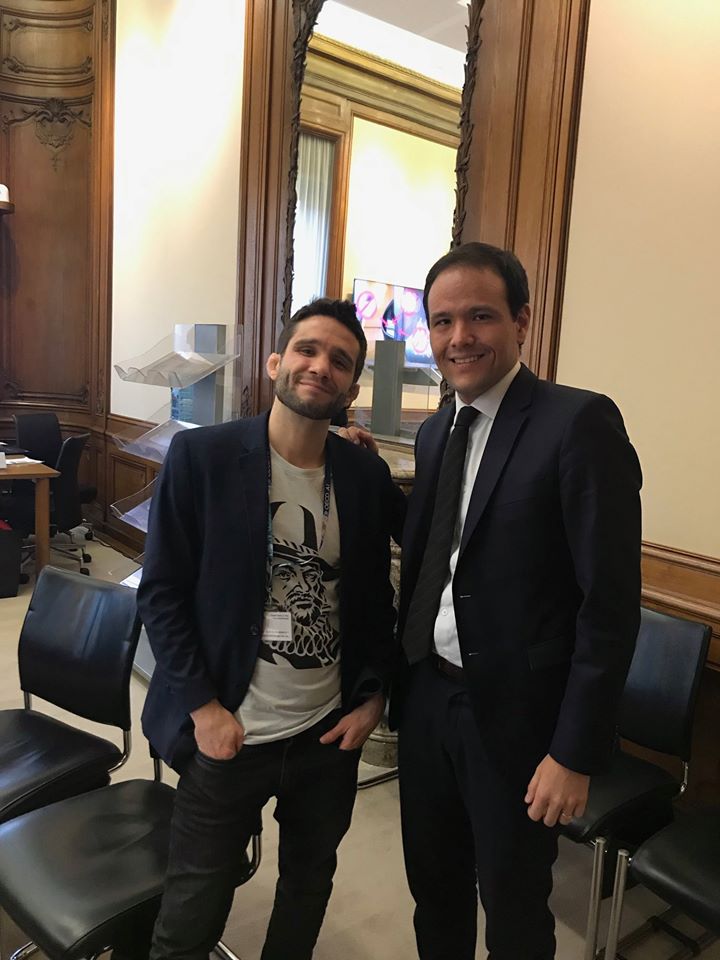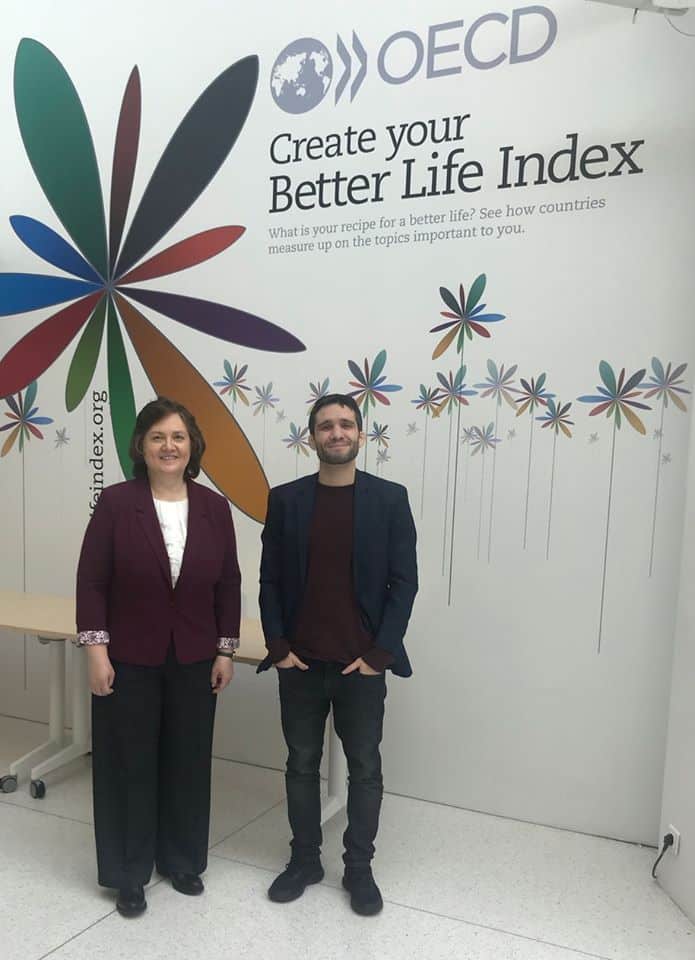Event Title: Launch of the OECD AI Policy Observatory
Event Host: OECD
Location: Paris, France
Date: February 26 – 27, 2020
Team Member: Daniel Faggella, Emerj Founder and CEO, Curator at Emerj Plus
What happened

Daniel was first in touch with the OECD for keynoting its symposium on AI in life sciences, which took place in 2019. The keynote involved presenting Emerj’s research into how the private sector is innovating with AI in pharmaceuticals, biotechnology, and more.
The OECD then reached out to Daniel to attend the launch of its AI Policy Observatory, February 26th and 27th, 2020, and be part of its ongoing network of experts on AI. The OECD was kind enough to also set up interviews between Daniel and influential leaders on AI governance from the United States and Europe, some of which will soon be released on the AI in Business Podcast.
On the first day, the OECD ONE AI group, a collection of AI experts, gathered to present and discuss trustworthy artificial intelligence practices, AI standards, and AI governance.
On the second day, attendees met with the Joint session with Going Digital II Steering Group before the formal launch of the AI Policy Observatory. This meeting included a demonstration of some of the data and insight the OECD is pulling together onto its new online platform to help policymakers navigate the impacts and implications of AI.
Daniel conducted a number of interviews, including one with Minister Cedric O, Secretary of State for the Digital Economy of France. He spoke with Emerj about the tension between regulation and innovation in Europe and the need for democratic countries to maintain a balance between the two.
Daniel also spoke with Lynne Parker, Deputy Chief Technology Officer of the United States at White House Office of Science and Technology Policy. She spoke with Emerj about the United States’ AI initiative and some of the efforts and progress that the US has made in investing in its own AI strategy.

She also talked about the US’ approach to international AI governance organizations and what the US believes is in its own best interest.
What we Learned
Policy Leaders Are Learning Fast
The OECD ONE AI group had a strong mix of OECD delegates who were digitally savvy and familiar with AI, as well as a number of private sector and academic folks with deep AI expertise. The room had much more AI expertise than most rooms at intergovernmental organizations; it was much more dense in terms of AI skill.
Emerj has been called upon for a number of these intergovernmental events, including a 2018 joint INTERPOL-United Nations event in Singapore, and Daniel has found that it’s clear that policy folks are learning more about these topics than they understood two years ago.
Two years ago, intergovernmental events were mostly filled with pure speculation about what AI could do and a lot of buzzwords about how it works and what its risks are. Now the conversations about risk are much more informed and nuanced, and the basic understanding about where AI is being applied and how it’s impacting the real world is much more thoroughly understood.
The event gave Daniel confidence in the fact that at least some policymakers are truly getting up to speed on AI and will hopefully be able to make more informed decisions because of it.
Differences Between OECD and United Nations
The United Nations is very large and has many different mandates. With the OECD, there is a much more overt focus on maintaining prosperity with AI as it relates to innovation, investment in the technology, and economic growth. This is part of the OECD’s mandate.
The OECD also has a focus on democracy and a strong focus on maintaining privacy, security, human rights, and inclusion, as a part of the narrative. The UN talks about many of these same concepts, such as privacy and inclusion, but they have to shy away from talking too much about humans rights and democracy. It’s a global organization, and there are countries that are less inclined to agree with the UN’s definition of human rights (to say the least).
The OECD is much different in that members and event attendees are able to talk about the importance of ensuring the stability and prosperity of democracies and leveraging AI for economic growth and maintaining innovation.
At Emerj, we believe it’s important that democratic countries that take human rights concerns into account have a place to discuss these issues. Daniel has written at great length of the potential weaknesses of democratic countries in comparison to say China.
The Challenges of Combining Regulation and Innovation
We find it heartening that there is a lot of conversation about the importance of both human rights and that the benefits of AI are seen by everyone. We are also encouraged by an emphasis on using AI for economic growth and the prosperity of countries. The event included discussion about both dynamics, but it is clear there doesn’t seem to be any known roads toward either.
The policy of AI and its impact on business are in very nascent phases. There doesn’t seem to be any firm best practices and concrete recommendations for how human rights, democracy, and economic growth can be strengthened by AI policy because neither the technology nor the conversations are far enough along.
However, it’s good that the conversations are starting because we believe there will be people who can come together with reasonably good ideas.
Emerj genuinely believs in the importance of the work that the OECD is doing in terms of strengthening democracies and focusing on productive governance for AI and plans to continue to support the OECD in the years ahead.
Header Image Credit: Glassdoor
















